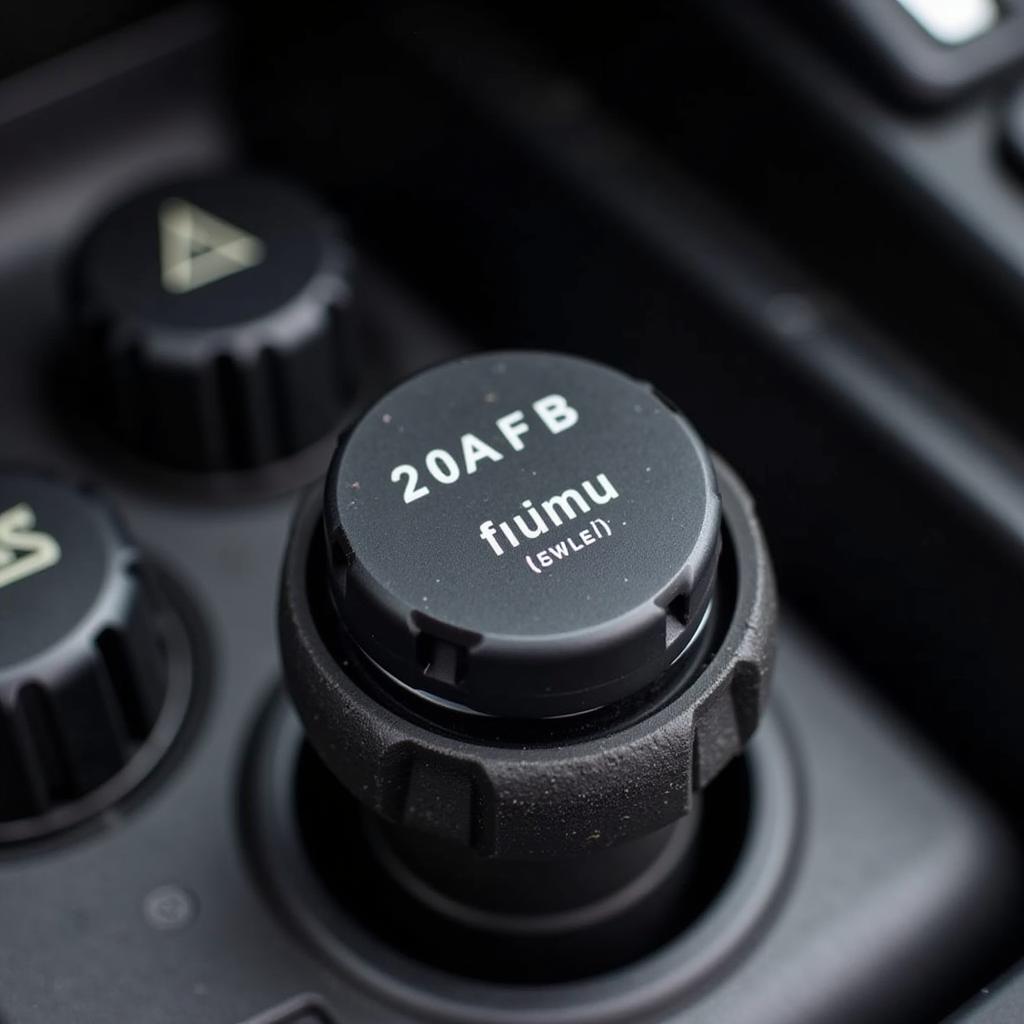A flashing 4WD warning light can be a nerve-wracking experience, often leaving drivers wondering about the root cause. While it typically signals issues with your vehicle’s four-wheel drive system, it can surprisingly point towards brake problems in some cases.
Although seemingly unrelated, your vehicle’s braking and 4WD systems can be interconnected in several ways. This article dives deep into the reasons why a 4WD warning light might indicate brake issues, helping you understand the potential connection and take the right steps towards resolution.
Understanding the 4WD Warning Light
The 4WD warning light is your vehicle’s way of communicating a problem within the four-wheel drive system. This system is responsible for distributing power to all four wheels, providing enhanced traction and control, especially on slippery or uneven surfaces.
When this light illuminates, it can indicate a range of issues, from minor sensor glitches to more serious mechanical failures.
The Brake System Link
While the braking system’s primary function is to slow down or stop your vehicle, its connection to the 4WD system is often overlooked. Modern vehicles, especially those with advanced 4WD systems and electronic stability control, share sensors and components between these systems for optimal performance and safety.
Common Reasons for the Connection
-
Wheel Speed Sensor Malfunction: Wheel speed sensors, crucial for both ABS and 4WD systems, monitor the rotational speed of each wheel. A faulty sensor can disrupt data transmission, triggering both the 4WD and ABS warning lights. This can lead to improper brake force distribution, affecting the 4WD system’s ability to engage or disengage correctly.
-
Electronic Stability Control (ESC) Issues: The ESC system, designed to maintain stability and prevent skidding, relies heavily on wheel speed sensors and brake system components. A problem within the ESC system, such as a faulty steering angle sensor or a malfunctioning yaw rate sensor, can trigger the 4WD warning light, alongside the ESC light, often accompanied by unusual braking behavior.
-
Differential Problems: The differential, responsible for distributing power to the wheels during turns, plays a crucial role in 4WD systems. Some vehicles have electronic locking differentials that use brake pressure to control wheel spin and maintain traction. If the differential malfunctions or experiences issues with its electronic control module, it can trigger the 4WD warning light and potentially affect braking performance, especially during turns.
“Many modern SUVs utilize electronically controlled differentials that work in tandem with the braking system to enhance traction and handling,” explains John Miller, a senior automotive engineer with over 20 years of experience in vehicle dynamics and control systems. “When these systems encounter problems, it’s not uncommon to see both the 4WD and brake warning lights activated.”
-
Brake Fluid Leak Affecting Electronic Components: A brake fluid leak, while primarily a brake system concern, can impact the 4WD system if it affects electronic components shared between the two. Electronic control units (ECUs) sensitive to fluids can malfunction if exposed to brake fluid, leading to erratic behavior in both the 4WD and braking systems.
What to Do When Your 4WD Warning Light is On
- Check for Other Warning Lights: If the 4WD warning light is accompanied by other warning lights, such as the ABS or ESC light, it strengthens the possibility of a brake system-related issue.
- Monitor Braking Performance: Pay close attention to how your vehicle brakes. Any unusual behavior, like pulling to one side, a spongy brake pedal, or unusual noises, should be addressed immediately.
- Seek Professional Diagnosis: The best course of action is to take your vehicle to a qualified mechanic specializing in both brake and 4WD systems. They can perform a comprehensive diagnosis using advanced scan tools to pinpoint the root cause and recommend the necessary repairs.
Conclusion
While a flashing 4WD warning light primarily indicates a problem within the four-wheel drive system, it’s essential to remember its potential connection to the braking system. Ignoring this connection could lead to misdiagnosis and potentially dangerous driving conditions. Always prioritize safety and consult a qualified mechanic for any warning light, ensuring your vehicle’s braking and 4WD systems are in optimal working order.

